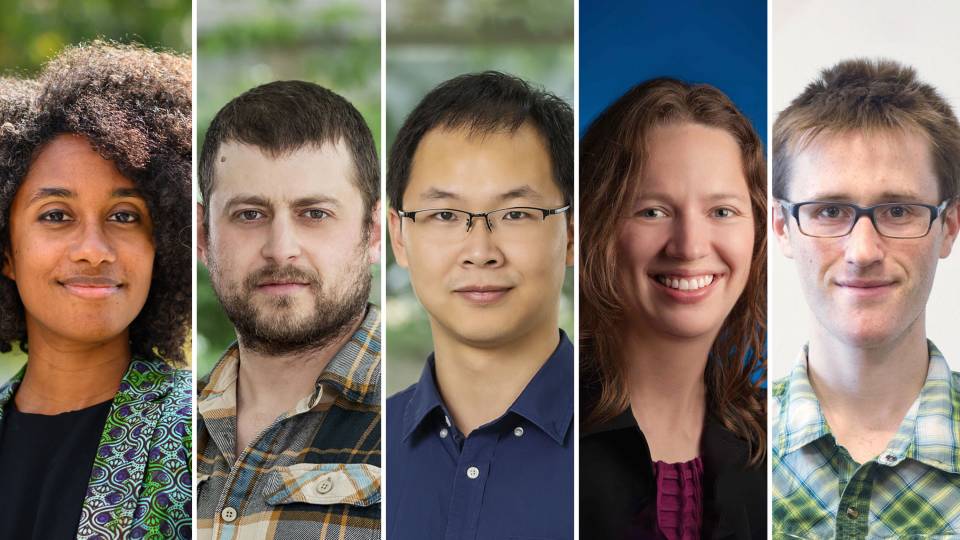Seven Princeton scientists have been selected to receive 2010 Sloan Research Fellowships, highly competitive grants given to outstanding scholars who are conducting research at the frontiers of their fields.
They are among 118 scientists, mathematicians, engineers and economists chosen for the award from 61 colleges and universities in the United States and Canada. Princeton earned the most fellowships of any single-campus institution.
The recipients are:
• David Blei, an assistant professor of computer science, who is working in the area of machine learning, the goal of which is to develop computer algorithms that discover and take advantage of recurring patterns in data. Among his specific areas of interest is "topic modeling," a field that aims to extract information about the structure and content of written documents and other media. He joined the Princeton faculty in 2006.
• Christopher Herzog, an assistant professor of physics, who is part of the high-energy theory group. He is interested in topics from a variety of fields including string theory and quantum field theory, as well as applications of string theory to nuclear and condensed matter physics. He earned his Ph.D. from Princeton in 2002 and joined the faculty in 2007.
• Adam Maloof, an assistant professor of geosciences, who is researching the relationship between ancient life, climate and geography. Through extensive field work, he collects physical and chemical records of sea level, ocean-atmosphere geochemistry and the Earth's magnetic field. His goal is to decipher the interplay between early animal evolution and climate change. Maloof joined the faculty in 2006.
• Celeste Nelson, an assistant professor of chemical engineering, who is combining biology and engineering to study how cells form the various tissues and organs of the body. Her work helps reveal fundamental mechanisms of development and offers clues about how tissue development can become corrupted, as in cancer and other diseases. She joined the faculty in 2007.
• Yael Niv, an assistant professor of psychology and the Princeton Neuroscience Institute, who is researching the neural and computational processes underlying learning and decision-making. She studies the processes by which people learn to predict future events and act upon the environment in order to maximize rewards and minimize punishment. She joined the Princeton faculty in 2008.
• Yuliy Sannikov, a professor of economics, who is interested in game theory and corporate finance and has developed new "continuous-time methods" that can be applied to questions such as CEO compensation and firm financing policies. He is exploring how incentives within financial institutions impact factors including market prices and financial stability. He graduated from Princeton in 2000 and joined the faculty in 2008.
• Amit Singer, an assistant professor of mathematics and applied and computational mathematics, who is focused on developing algorithms for three-dimensional structuring of macromolecules such as the ribosome. He uses cryo-electron microscopy, an alternative to X-ray crystallography, in which samples are rapidly frozen in a superthin ice layer. He is developing techniques that would radically improve those structures for study. He joined the faculty in 2008.
Sloan Research Fellows are free to pursue whatever lines of inquiry are of most interest to them, and they are permitted to employ the funds in a wide variety of ways to further their research aims. The grants of $50,000 each for a two-year period are administered by their institution.
The fellowships have been awarded since 1955. Many Sloan Fellows have gone on to win Nobel Prizes and Fields Medals, the top honor in mathematics. The foundation is a philanthropic institution based in New York City. It was established by Alfred Sloan Jr., then-president and chief executive officer of the General Motors Corp.


